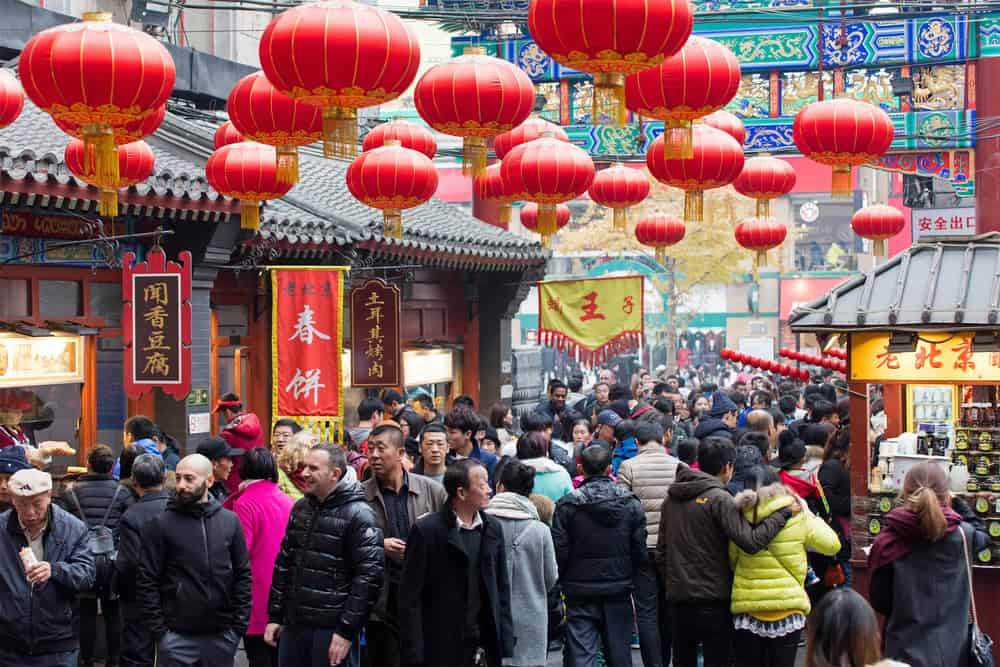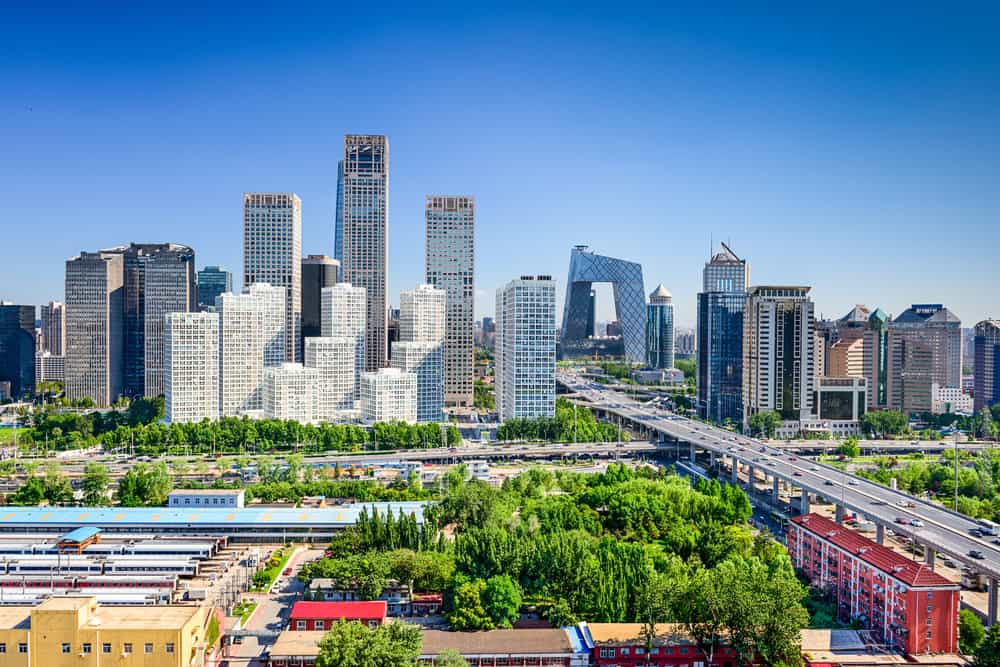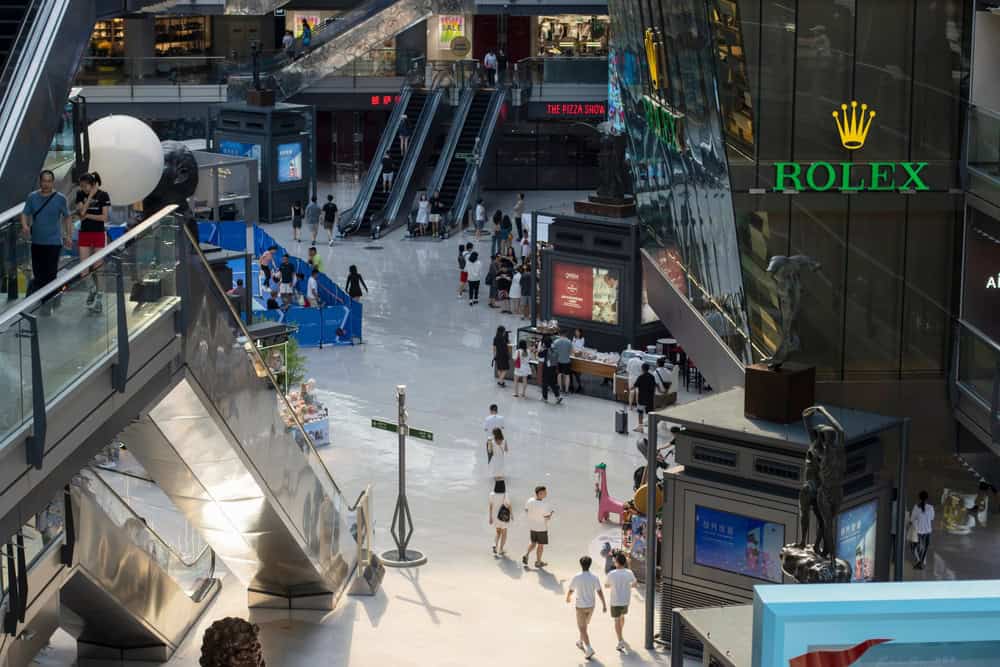Are you considering living in China? Whether you’re planning on going solo, with friends, or with family, you should know a few things before taking the plunge, some of which we have listed in this handy guide below…
1. Learn some Chinese

Chinese isn’t the most straightforward language to learn, although learning the vocabulary means life in China will be easier for you.
Learning this language is also a huge achievement and something you should be proud of! For best results, start with the basics, such as how to say please or thank you, ask for directions, or the bill.
Enrolling in classes and using apps is a great way to get started, and there are plenty of learning materials available on the World Wide Web, including Google Translate. Of course, immersing yourself in the country and Chinese culture is the best way to learn.
2. Moving to China is easier than you think
Although a faraway destination, living in China isn’t as difficult as you may think as well as Chinese people, it is home to many expats and many English-speaking individuals.
The easiest way to move is to do so with a job. Many US companies will offer major cities in China as an option for a secondment. It is also a great place to go if you wish to teach the Chinese version of English.
3. Prepare for a culture shock
Living in China is very different from living anywhere else in the world. This country boasts many traits that most expats don’t see elsewhere.
It is essential to prepare yourself for a culture shock when living in China for the first time! From the mass of the people to the inability to queue, the spiraling traffic, towering buildings, exotic foods, and hectic markets.
4. China is a very safe country
Regarding crime, China is renowned for being one of the safest places for expats.
This is mainly due to the strict law enforcement, draconian criminal penalties, and the 99% conviction rate.
5. The food is different from what you might be used to

The food (asides from the fortune cookies) is exceptionally exotic in this part of the world! You’ll often be able to try the food here that isn’t available elsewhere. This can be both exciting and daunting.
To be on the safe side, be sure to ask what you’re going to eat before ordering it, as it can be rude not to eat the food in front of you, especially when at restaurants.
6. You’ll need to download a VPN
A solid VPN is a must when living in China. Thankfully, this is easily achieved and prevents you from getting caught up in what is known as the Great Firewall of China.
You should install a VPN on all devices, from laptops to iPads and iPhones. It is essential to do this before moving to China. Why? China is renowned for blocking various popular websites, many of which you will likely need or use daily.
Scrolling through social media and speaking to family and friends when in China is a great way to combat homesickness. Also, make sure that the VPN you intend to use works in the Chinese world.
7. Air purifiers are a must-have
China is a large, dynamic country but the air quality can be poor, especially in the larger cities.
From traffic to people and manufacturing, it’s wise to ensure that the air you breathe is safe when you’re living in China. This is one of the reasons Chinese wear face masks when out and about – even before the pandemic!
8. Forget everything you learned about queuing

Queuing is not the norm in China. It happens everywhere.
Many consider the Chinese to be both direct and blunt. However, this isn’t the case. They are simply assertive.
If you’re not assertive when living in China, you’ll be left behind! Adopting this attitude will also ensure you fit in and are not taken for a ride. Whether out and about or at work, knowing when to say no is a must! If you can’t say no, expats living in China risk being walked over.
When moving to China, a place home to an astonishing 1.4 billion people, it’s essential to know how to speak up. In this part of the world, the loudest and the fastest get what they want.
Being both assertive and confident on a day-to-day basis will ensure a better experience for China.
9. Coffee is expensive
Coffee lover? You better be prepared to pay a little more for your caffeine fix in China.
Don’t worry, it’s not massively expensive, but it is imported from Yunnan, which is why it is a little on the pricey side, especially when compared to local Chinese food.
10. Don’t flush your toilet paper
There is a vast selection of toilets in China, ranging from holes in the ground to European-style porcelain toilets.
If there is a bin to hand, it is essential to place toilet paper in this vessel and not down the toilet as this can cause blockages.
11. You’ll have to register with the police
In China, police registration is mandatory for expats. Those entering cities in China with the PBS or Public Security Bureau must do so through a local police station. This has been a requirement since 1 July 2008 and was enforced in just 48 hours.
According to Chinese immigration law, every foreigner must register with the police within 24 hours of arrival in China.
12. WeChat is a huge part of China

With over one billion users, WeChat is one of China’s biggest social media channels. It makes up part of the five global apps to surpass this quantity of active users.
The paid version ‘WeChat Pay,’ created using Tenpay’s framework, boasts over 900 million users, overriding AliPay.
13. Wear a mask every day while outdoors
Masks have been mandatory in this part of the world (and a great deal of Asia) since before Covid-19.
People in China wear them to safeguard their respiratory system from infections and pollution, and to stop the spread of pathogens they may be carrying.
14. The cost of living in China
In China, for a family of four, the average monthly costs are estimated at $2,184 (this equates to 13,897¥). This figure doesn’t include rent, which varies depending on location and the size of the apartment you choose to reside in when moving to China.
The individual can pay around $595 per calendar month (this is equal to 3,785¥). This figure is again void of rent costs.
Overall, the cost of living in China is 37.95% lower than that of the costs of living in the United States, with rent being an impressive 44.74% lower.
15. Chinese social customs
Chinese traditional cultural values comprise benevolence, harmony, righteousness, wisdom, courtesy, loyalty, honesty, and filial piety.
These values are embedded in China’s diplomacy, the most important being harmony.
16. Finding an apartment is easy

There are many apartments to choose from, mainly because there are many Chinese people to house. Before selecting an option, think about the area. It is a good idea to pick a location close to schools (if moving with family) or to your place of work.
When looking at apartments, you are expected to negotiate on the rate, especially if something in the apartment needs fixing or isn’t to your liking. This can often help to lower your monthly rental fees or enable a shorter or longer lease.
Landlords will sometimes lower the rent if it means an easy rental.
17. Work-life balance in China
Working life involves a standard 40-hour week, split across five days.
The most common days are Monday to Friday from 8 am to 5 pm. This is heavily dependent on your line of work.
18. Driving in China with a foreign license
Foreign driving licenses or the International Driving Permit are not recognized in China. However, foreigners and expats who hold valid permits can apply for a Chinese driver’s license.
On the other hand, tourists are not permitted to drive in China and take public transportation.
19. It’s all about brand names

Status is hugely important in China, and many will often use branded goods, such as clothes, shoes, and bags, to reinforce their status or social identity.
Luxury goods act as social tools in this part of the world and are often why certain people get along with specific groups.
20. Keep your passport on you at all times
In China, it is a requirement to have your passport on you. If judicial authorities or a police offer requests you show them your passport, expats must present it immediately.
If it is not in your possession, the officer in question will likely escort you to its whereabouts.
21. China is a multi-religious country
This area is multi-religious. Taoism, Islam, Buddhism, Catholicism, and Protestantism have all developed over the years and are now seen as culture-shaping communities.
The constitution safeguards everyday religious activities as freedom of belief is a government policy.
FAQs
How can foreigners open a bank account in China?
To open a Chinese bank account, you must have in your possession:
- A work permit
- A valid passport
- A copy of your residence permit
Can foreigners buy health insurance in China?
Yes, both foreigners and expatriates moving to China can buy worldwide health coverage in China. This coverage can be tailored to include or exclude the USA while residing in China, in cities such as Shanghai or Beijing.
These products offer up to or more than $5,000,000 and include outpatient care, hospitalization, prescription medication, pre-existing conditions, and mental health coverage.
How long does it take to get a work permit in China?
Work permits in China vary, and the time they take to request generally depends on the region you wish to reside in. The process tends to take an average of two weeks.
If approved in these two weeks, the relevant authority will issue you a working permit. Once you hold this in your possession, you can begin applying for your jobs with what is known as a Z visa.
How long does it take to get a residence permit?
An interview (not in-depth by no means) is usually conducted to ensure you apply for a permit. This type of permit can be processed once the consultation has concluded and tends to take anything from two and six weeks to be made active.
For best results, avoid leaving China before being granted a permit. A new entry visa must be given to return to China, irrespective of whether you’re traveling from Beijing or Shanghai.
Are there schools for foreigners in China?
There are numerous options to choose from when it comes to education. Expats tend to choose private, public, or international schools. Homeschooling is also an option, while if your child speaks the local language, they can be sent to enroll in a local school in the likes of Shanghai or Beijing.
Is public transportation good in China?
Several improvements have been made to road construction in China in recent years, and convenient transport options are readily available per square meter.
Public taxis, buses, and bicycles are the most prevalent forms of public transport to choose from in large cities. Other contemporary options include light rail, subways, and Maglev trains.
Final Thoughts
China is home to an abundance of open doors, many of which promise to assist expats in their quest for expansion and growth. Those living here have the option to embark on a wide range of top-end jobs with both international companies and locals.
The most predominant jobs for ex-pats moving to China comprise retail, financial services, and pharmaceutical industries.